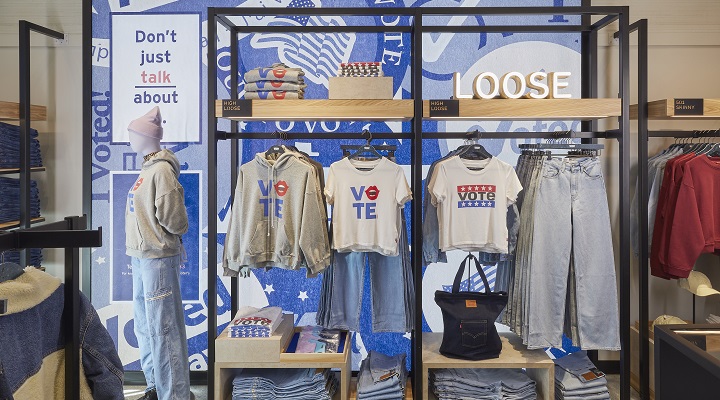In just a little over two weeks, Americans will head to the polls to choose the next president of the United States. But if past elections are anything to go by, only a little more than half of eligible voters will actually cast a ballot. While the US is the longest-standing democracy in the world, it notoriously has one of the worst voter turnouts among developed nations. Unlike Australia, where voting is compulsory, US citizens aren’t required to vote, and there are various reasons why
why they might not.
For one thing, Americans aren’t automatically registered to vote as soon as they become eligible, and the process of becoming registered can be complicated and time-consuming. Even those who are registered to vote could be turned away on election day if they don’t have proper identification, or if they’ve been erroneously “purged” from the rolls. And let’s not forget voter apathy, with many people believing their vote won’t count anyway due to unfairly drawn districts and the electoral college.
But one of the biggest barriers to voting, and perhaps the most puzzling to outsiders, is that, since 1845, federal elections have been held on a Tuesday, which for most Americans is a workday. And while some states offer early voting and make it easy to vote by mail, others do not.
This could be less of a factor in the 2020 presidential election, however, with thousands of companies, including many retailers, pledging to give their workers paid time off to vote.
Time to vote
Walmart, Macy’s, JCPenney, Best Buy, REI, Nike, J.Crew, Gap, Barnes & Noble, Lego, Dick’s Sporting Goods and Domino’s are just some of the major retail chains that have joined Time to Vote, a nonpartisan organisation started by Patagonia, Levi’s and PayPal in 2018, which aims to increase voter turnout by making sure people don’t have to choose between earning a paycheck and voting.
Members can take their own approach, with some companies making November 3rd a meeting-free day (Gap) or paid holiday (Patagonia), and others opening stores late or closing early (Best Buy), or offering several hours of paid time off to vote (Walmart).
“People have fought and died for the right to vote in America and as business leaders we have a role to play in helping our employees participate in the democratic process,” said Chip Bergh, president and CEO of Levi Strauss & Co. “This campaign isn’t about any particular party or candidate or issue – it’s about encouraging more people to vote without having to make the hard choice between going to work and going to the polls.”
A nonpartisan issue
Another organisation getting CEOs involved in voter turnout efforts is Civic Alliance, which has the support of Amazon, Nordstrom, Target, Starbucks, Under Armour and McDonald’s, among others.
Together, the two organisations represent more than 2000 companies and an estimated more than 10 million employees. And that’s not counting brands like Birkenstock, Foot Locker and Deciem that aren’t official members of Time to Vote or Civic Alliance, but have similar policies to enable workers to vote on election day. (Last month, Foot Locker also turned its 2000 stores into temporary voter registration hubs.)
While it has become more common for companies to speak out on issues like climate change and marriage equality, most brands still tend to avoid explicit statements of support for political parties or candidates. Their efforts to increase voter turnout are noticeably nonpartisan, meaning they are simply encouraging customers and staff to cast a ballot, regardless for whom.
“Supporting our democracy – and supporting our planet – are not inherently political issues but of course they have been very polarising in recent years. And I think that is exactly why it is important that the private sector address these issues,” Corley Kenna, a spokesperson for Patagonia, told Inside Retail.
“Unlike our elected officials, they have an ability to offer a viewpoint that rises above politics – and that is so critical when it comes to pressing issues like voting rights and climate change.”

